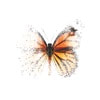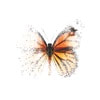ELEMENTS
Andrea is an accomplished writer and former executive who
fought FOR nearly two years to overcome advanced, metastatic
breast cancer at age 31. During and following this profound time in
her life, she CAPTURED her emotions THROUGH collages and poetry.
After many years, she assembled the collection to create her book,
"Chemical Butterfly, poems and collages: My Battle as a Cancer Survivor."
Cancer has neither defined Andrea nor become the focal point of her life,
but HAS enlightened her in MANY ways. SHE BEGAN her blog, "Elements,"
TO EXPLAIN the CATALYSTS BEHINd her work, SHARE personal experiences,
and CONVEY lessons SHE HAS learned throughout her journey.
PLEASE FEEL FREE TO COMMENT ON ANY POINTS THAT RESONATE WITH YOU.
fought FOR nearly two years to overcome advanced, metastatic
breast cancer at age 31. During and following this profound time in
her life, she CAPTURED her emotions THROUGH collages and poetry.
After many years, she assembled the collection to create her book,
"Chemical Butterfly, poems and collages: My Battle as a Cancer Survivor."
Cancer has neither defined Andrea nor become the focal point of her life,
but HAS enlightened her in MANY ways. SHE BEGAN her blog, "Elements,"
TO EXPLAIN the CATALYSTS BEHINd her work, SHARE personal experiences,
and CONVEY lessons SHE HAS learned throughout her journey.
PLEASE FEEL FREE TO COMMENT ON ANY POINTS THAT RESONATE WITH YOU.


 RSS Feed
RSS Feed